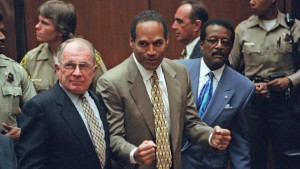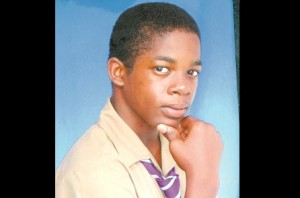
The Court of Public Opinion
October 27th, 2016
Dark clouds are hanging over the city again this afternoon.
The last couple of weeks have been quite stormy (and not just the long, gloomy days we have been experiencing). There has been a great deal of upset over a murder trial, and the not guilty verdict delivered earlier this week. I am speaking of the murder of a teenager (at the time) Khajeel Mais, in what has come to be called the “X6 murder trial.” He would be in his twenties now, if he had not been shot dead in a taxi cab in Kingston in July, 2011. Yes, the case has taken over five years to reach a conclusion – and a rather abrupt one at that, as the main witness changed his tune and the alleged perpetrator was acquitted. The media has not handled the matter particularly well, with a few exceptions, feeding the public morsels of information bit by bit. Pieced together, none of it really makes sense to the average man/woman on the street – who, yes, would like to know how and why this verdict was arrived at. We actually do need to at least be presented with the “facts,” but it may be in this case that we will never know them. A miasma of doubt clings to the whole affair, no matter how much people explain this or that aspect of it in countless media interviews that seem to go nowhere.
So, some people in the legal profession have expressed frustration at the level of discussion on social media. They (the general public) don’t know what they are talking about, the professionals say. They just fly off the handle, rant and rave. They don’t listen to the voices of reason (that is, the voices of the lawyers). That is as may be. Firstly, we surely know by now that social media platforms are so often sounding boards for people to rant, complain and air their grouses – whether we like it or not. The irritated lawyers use it in the same way themselves, from time to time. Many social media posters are unable to initiate action (or so they believe) and are therefore equally frustrated. This is quite normal human behavior.
Secondly, when snippets of information are released here and there, people start developing their own theories. They try to put the pieces together, like a jigsaw puzzle, hoping they will form a picture. This is also something that people tend to do when information is unclear and insufficient. “Nature abhors a vacuum,” as they say. There is nothing reprehensible or sinister about it, though it may be annoying to those who “know better” (but do not necessarily reveal what they know). Again, humans tend to do this. I have drawn my own conclusion on this particular case (and many others). It is summed up in one word, beginning with “c.” And again – I may be wrong.
Jamaicans have lots of freedom to express themselves on social media and elsewhere (thankfully), unlike some countries I could mention. We don’t have to agree with each other, and many people may be completely off the mark with their theories. Yet, there are “know-it-alls” everywhere, who are instant experts on almost any topical subject. I am sure we all know one or two. This kind of mindset existed long before social media; now, however, the know-it-alls have a much wider, instant audience online, hence a greatly amplified voice. And of course there are the numerous WhatsApp discussions and direct messages that we are not all privy to, rumbling away in the background and fueling the fire of public opinion.
Personally, I find it amusing that Jamaicans have personal opinions on almost anything under the sun, and will go back and forth for hours, chewing over a topic. In local parlance, this is called “reasoning” – although sometimes there is not a great deal of reason involved. Nothing unusual about this, either.
So the lawyers are upset that people are not necessarily swallowing their learned opinions wholesale. Equally, I saw one doctor complaining that his patients think they know more about their illness than he does, after referring to the Internet. Well, in that case dear doctors, perhaps you will need to be more emphatic and clear in your diagnoses, so patients will not feel the need to turn to their computers and smartphones for more information. It’s all a question of trust and confidence – something that seems to be draining out of our society at a rapid rate these days. Meanwhile, we will continue doing a Google search on our symptoms, comparing webMD with the Mayo Clinic, and so on. It’s information at our fingertips.
So don’t whine about social media. It gets blamed for everything, these days. We all need to get things off our chest sometimes, and we don’t always sit down and accept what is fed to us by the experts. A question mark is often a good thing, at the end of a sentence. It shows that we are thinking. We may be barking up the wrong tree. But the fact is… We need to know. And the trust factor is probably at al
This is the world we live in, and those who are experts had better recognize this, develop thicker skins perhaps, and adapt accordingly. However, all of this is not anything new; some of us older people will remember the long, sensational O.J. Simpson trial, which unfolded on a daily basis on television like a soap opera and was a huge talking point for all. Was he guilty? Wasn’t he? Everyone had a theory. However, this was not after the fact, but as-it-happened. Did it affect the eventual outcome of the trial?
The jury’s still out on that one.

O.J. Simpson, center, reacts as he is found not guilty of killing his ex-wife Nicole Brown and her friend Ron Goldman, as members of his defense team, F. Lee Bailey, left, and Johnnie Cochran Jr., right, look on, in court in Los Angeles on Oct. 3, 1995. (Myung J. Chun / Associated Press)
Tags: human rights, Internet, justice, Khajeel Mais, murder, OJ Simpson, social media
The Gleaner reserves the right not to publish comments that may be deemed libelous, derogatory or indecent.
To respond to The Gleaner please use the feedback form.
One Response to “The Court of Public Opinion”
- We Are the Zoomers
- Living Online with Humans and Birds: NAOC 2020
- Human Trafficking and the Problem of Public Education
- Down Memory Lane
- Are We Ready to Recover from COVID-19?
- Road Safety Matters: Is Your Vehicle Safe?
- Sexual Harassment, Me Too, and the Minister’s Disturbing Giggle
- The Vulnerable Senior Citizens, Private Care Homes and COVID-19
- A Muddle Over Masks
- Here is Something Life-Saving You Can Do: Give Blood!





[…] with the case. I wrote about “The Court of Public Opinion” in my Jamaica Gleaner blog here. First of all, there is the all too common matter of “Justice delayed, Justice denied.” […]